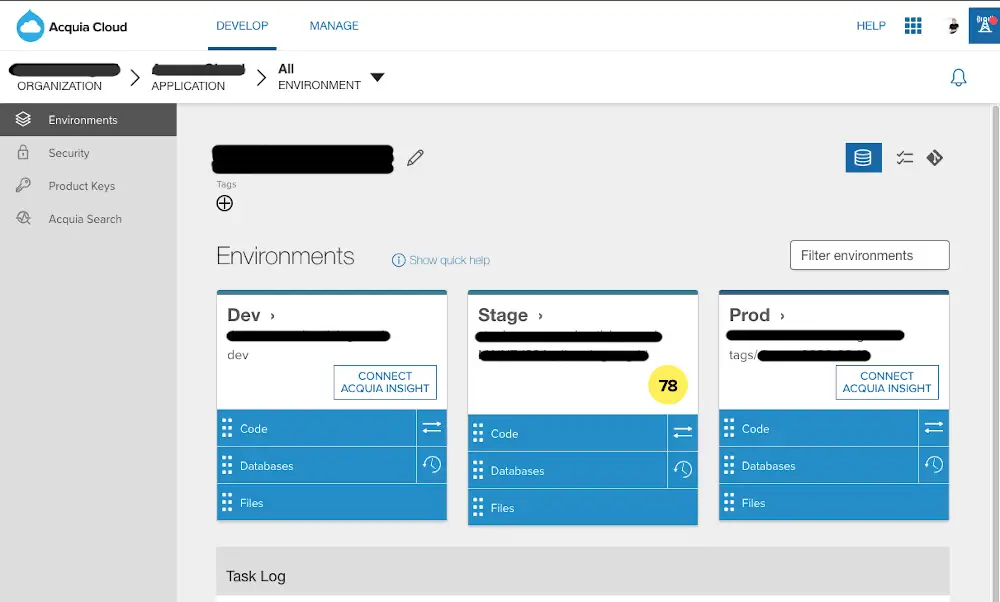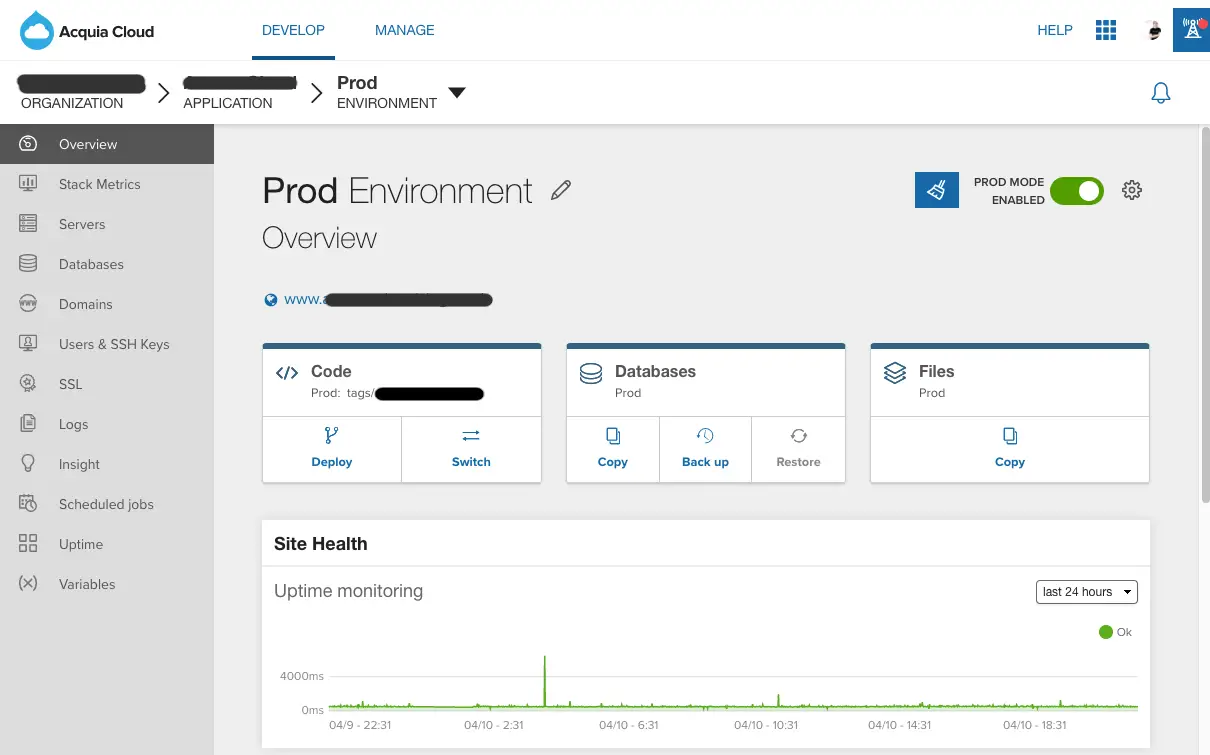I've been looking at Drupal hosting solutions recently, and after trying a few I thought I would write a quick review of each. I was specifically looking for hosting providers that provide dedicated Drupal hosting support and an administration dashboard of some kind. It turns out that a handful of such suppliers exist.
Whilst it is perfectly possible to setup a server on AWS or DigitalOcean and then install Drupal there, this isn't what I am looking at. The good thing about Platform as a Service (PaaS) solutions is that you get hosting, backup, recovery, logging, tools, and analysis all built in. Some platforms even have extra tools like build pipelines, marketing systems or analytics.
What I'm not doing is a massive deep dive on all platforms. Ultimately, your mileage will vary and what you get out of these platforms will be different for most people. You will know the requirements of your project and what you need to accomplish. Some platforms even have free trials or developer sandbox environments that allow you to create an account and see what they have to offer.
Also, if you want to know more about a platform, then please contact them directly. I'm sure they will be happy to hear from you.
The first on this list is Acquia.
Acquia is the company set up in 2007 by Dries Buytaert, the creator of Drupal. Starting out as a Drupal hosting and consultancy that has grown into a substantial company which provides much more than just hosting. Today they have a variety of different services available. They still provide hosting and consultancy services but now also have marketing automation services and a suite of other tools.
 Pros
Pros
- Proven Drupal optimised PaaS, based on AWS.
- 24/7 support on application and platform.
- SLA across all technologies, including 99.95% uptime SLA.
- Experts in Drupal support and professional accounts will have a Technical Account Manager (TAM).
- Dev, stage and live environments allowing for independent development and testing of code before being put live.
- Code can be deployed and moved around using built in managed deployment tools.
- Built in Insight reports that provide information on Drupal best practices.
- Built in New Relic monitoring.
- Solr search is built into the platform (using the Acquia Search module).
- Content Delivery Network (CDN) provided by Acquia Cloud Edge and powered by Cloudflare.
- Automated backup and restore.
- Built in marketing tools in the form of Mautic.
- Personalisation tools in the form of Lift and Content Hub.
- The ability to export logs or even stream them into a third party logging system.
Cons
- Acquia have a relatively high cost compared to other providers.
- As Acquia use a server based hosting environment, there is a lack of auto-scaling.
- Dev and stage environments do not fully match the live environment in terms of setup and configuration. This can lead to some strange edge cases on occasion.
- The version of Solr in use is quite old (currently 4.4).
- No provision for the use of Let's Encrypt certificates.
- Difficult to use subscription and user management system.
- Although the Lift and Content Hub systems are impressive products, actually connecting them up and using them can be a time consuming exercise. There isn't a lot of documentation on how to do it, just about the platforms themselves.
Dashboard
Acquia's dashboard has its flaws but once you know where everything is it's pretty easy to find the project or function you are looking for.
Here is a screenshot of the Acquia dashboard. This shows a single subscription, with the standard dev, stage and prod environments.

Clicking on one of these environments shows the detail for that environment. From here it's possible to view all of the usual tools and configurations associated with a website.

As you can see there is quite a lot to control here; including configuring servers, viewing logs, making database backups, or even configuring cron jobs. Acquia also have an Insight tool that collects information on the site and shows any problems that might cause issues to your setup.
Conclusion
I have used Acquia for many years and I really like their service. Their support systems are very good and they will quite often be proactive in helping me address problems with sites. I always feel like there is a real person on the other side of the support ticket and that they are trying their best to help me. Having a support engineer who is familiar with my project is really important and you quickly find it a valuable resource.
Acquia also have a Technical Account Manager (TAM) service, which is access to a Drupal expert that can provide solutions to any problems you might be having on your sites. I have spent many hours chatting to TAMs over the years and have always found them to be a real asset to the project, especially when faced with some complex technical challenges. There are some very talented people at Acquia, and that really shows through with their support and their TAM service.
If you didn't know, you can actually sign up for a free developer subscription with Acquia. You won't have access to the production environment or the ability to set up custom domains but you'll get access to enough to make a good analysis of the platform. I have used this feature frequently to set up a few development sites that I often use for testing or demonstrations.
As I said above, Acquia provide more than just Drupal hosting. Their goal is to become everything needed for a Drupal site as well as hosting and as such they have tools providing digital asset management systems, search, marketing automation and personalisation. Their Lift and Content Hub products are quite powerful and they have a few other products that provide a lot of benefit to their customers.
I should say though, that when working with Lift and Content Hub it was clear to me that Acquia have built these tools but don't really have a solution on how to use them within Drupal. The tools integrate well into Drupal, but there appears to be little thought how users can create personalised components. I had to devise a system in Drupal that would allow users to create content that we could then push Content Hub, which we would then deposit on sites using Lift. Whilst they are powerful (well documented) tools in their own right, there doesn't appear to be the joined up thinking that would give the product an edge.
One thing I continuously find very frustrating is Acquia's user management system. It is quite difficult to tell what sites are contained in what subscriptions and what users have access to them. Not to mention what users can do in those subscriptions. I manage quite a small team on Acquia, but when I'm asked to add user 'x' to site 'y' I often have to spend a while trying to figure out what subscription I should use.
Acquia hosting allow a certain number of visits per month and this information is contained in the subscription management area. Unfortunately, it is a real struggle trying to find that information as it is buried in other information. This has improved in recent years but it's still a pain trying to track this information down when it should be front and centre.
The lack of auto-scaling on the platform is occasionally a problem as well. When sites get a lot of traffic the underlying infrastructure just stops working and you are forced to increase the capacity of the server, often with an increased cost. Once this is done there isn't an option to downscale so you are stuck paying for capacity that you might not use. This is in direct contrast to other PaaS providers who use a container based approach that scales with demand. I really hope Acquia is thinking of switching over to the container based approach in the future as they are really falling behind. I have heard rumours in the last couple of months that they are looking at container based hosting but they are years behind the curve in this regard.
The bottom line is that Acquia isn't for everyone but what they provide is really well managed and highly professional service. The problems I've mentioned above are rather edge case and don't cause problems most of the time. If you are looking for specialist Drupal hosting with some unique requirements then Acquia will be perfect as they will be able to adapt their platform to accommodate your needs. They can be quite expensive though, and it often isn't clear what features you have for the price you pay. Their marketing automation tools only add to the service that you receive and can take your sites to the next level with content personalisation and joined up marketing.
What is your opinion of Acquia PaaS hosting product? Comment below and let me know. I'd be interested to hear your experiences.
 Pros
Pros

Add new comment